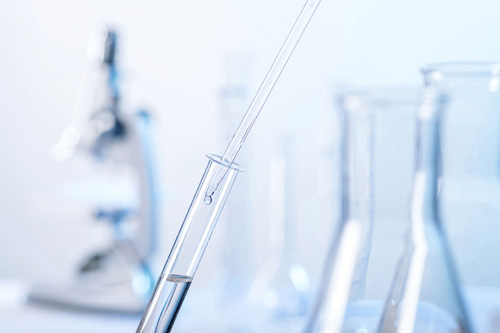Water treatment plants provide a valuable service by ensuring that the water pouring from your faucet is safe to drink. These plants take water from surface water, such as streams, lakes and rivers. They also pulls from groundwater sources like wells. A major goal of water treatment plants is removing harmful chemicals, minerals and bacteria from the water. However, you will still want to test your water, even if it has been treated in a plant.
How Water Treatment Plants Work
The water in the United States is typically rated among the safest in the world, but even then, it can be contaminated with things like cryptosporidium, E. coli and other harmful bacteria. Water treatment plants use several steps to ensure that the water that reaches your home has been sufficiently treated. These steps include:
- Coagulation and flocculation: Chemicals are added to the water that attach themselves to dirt and other dissolved particles. These particles grow larger, making them easier to filter out later in the process.
- Sedimentation: This is when those larger particles created in the previous step settle to the bottom.
- Filtration: With the larger particles now at the bottom, the clear water on top passes through different filters to remove dissolved particles. Things like bacteria, viruses and parasites get removed at this step.
- Disinfection: In this final step, disinfectants like chlorine are added to kill any remaining parasites and bacteria to protect the water that is sent to homes.
Water Treatment Plants Aren’t Perfect
Water treatment plants remove many harmful things from water, but there is still potential for unsavory contaminants to reach your home’s water supply. During the trip from the treatment plant to your home, the water may pick up additional chemicals and elements from pipes. This is especially true if you live in an older home with older pipes that may have deteriorated over time. Things like zinc, arsenic and lead may be in your water.
Owners of new homes may have a different set of problems. While the pipes are new, construction in the area may lead to additional chemicals, like paint, getting into the water system. Dead animals or animal feces can also make their way into the water system through cracked or damaged pipes. While these cases may be rare, they can cause a person to become sick, or in the worst-case scenarios, even die. Treatment plants have already treated water at this point in the process.
Then there are the inherent problems that water treatment plants face including:
- Seasonal changes in the amount of sediment in the water (known as turbidity) can cause contamination in plants that fail to meet discharge requirements. This can create sludge and other problems that effect water treatment. Seasonal changes can also change water chemistry, causing problems for plants that do not rapidly adopt to these changes.
- The variable flow rates can change based on the climate. Some water treatment plants might find themselves overwhelmed during a particularly warm winter or an especially heavy rainy period.
- Water quality standards also change, and some plants may not be able to meet these demands. They may need to purchase new equipment or incorporate new systems. Federal regulators make these changes based on new research and your local water plant may be too slow to adapt.
These treatment plants face a difficult and ever-changing job. While almost all take the necessary precautions to ensure water safety, there is still the possibility of the system failing.

The Need for Lab Testing
Even if your water is treated in a water treatment plant, you will want to get it tested at a third-party laboratory like the one at the Atlantic Blue Water Center. This is true even if you use a commercial water filter in your home. These filters are not perfect and can create a false sense of security. Our lab can quickly test your water to ensure that there are no contaminants or dangerous chemicals that you will want to remove. These elements can make their way into the water supply after the water is treated at a center.
We ask that you bring or submit a sample directly from your faucet so we can check the exact water that you and your family use to drink, cook and clean. Our experts test your water to find the exact concentration of chemicals and minerals, identifying for you any potential dangers. Get a test today to give yourself peace of mind.
Remove Waterborne Contaminants Using Atlantic Blue Water Center
We provide water treatment solutions for homeowners that want a cleaner water supply. We’re also focused on providing additional education on water treatment, water quality, and issues associated with water contaminants. Call us at (410) 751-9200 to schedule your in-home water testing appointment today.
